This Master Bathroom project is a doozy! The beauty of DIY is, in many cases, you can figure things out as you go. You do the work when you have the time, or you order the materials as you get the money, or you take it step-by-step and eventually see it all come together. This project, is not like that. And nowhere is that more true than with the plumbing.
If a bathroom renovation could be visualized as a giant circle of people holding hands, then every other person would be some kind of plumbing fixture or drain. If one person moves, the people holding hands with them move. So, any change to the plumbing, no matter how small, impacts some other part of the project. And any change to other parts of the project, changes the plumbing. For this bathroom we're using all Kohler products and have been making a lot of on-the-spot decisions this week, more things that I've never even thought about and yet, suddenly absolutely had an opinion on. Here are a few decisions we've had to make, (and some things for you to think about in your own future, or current bathroom projects).
Toilet location
Ideally, you want the toilet in that one spot. But, as it turns out, there's a floor joist there. Or a recessed light fixture from downstairs. Or heating vents. The locations where we wanted our toilet (that we even bought a very slim toilet tank for) fell right on a floor joist, so we had to move the toilet out a few inches. In order to keep enough space in front of the toilet, we also needed to push the shower wall out (the toilet closet and shower share a wall - you can see the toilet drain behind the wall in the photo below).

But the shower was already borderline too small, so we also pushed the other wall into the bedroom a few inches. That wall was coming down anyway to put in a pocket door, so the only additional work was cutting some tile. We went forward with it to make our final shower size 48x60.
Valve types
Choosing a shower may seem straight forward, but a lot of homeowners spend less time thinking about how they want their shower controlled. Inside the wall is where you put your shower valves, and different valves do different things, and what you choose depends on how you want your shower to function. We actually completely misunderstood what we wanted and what we ordered and had to have some extra valves overnighted.
We went with two shower heads coming from opposite walls, and a rain head coming from the ceiling. We want to control the temperature of each independently (Jules has lizard skin or something - she's apparently impervious to scalding heat), as well as being able to control the flow of the water. So we chose to run separate lines for each head, and give them each a Kohler thermostatic valve for temperature control and a Kohler volume valve for flow control, and to turn it on or off.

If you're unfamiliar with the roles each valve plays, essentially the thermostatic valve only controls the temperature. You set it where you want and you leave it that way. The volume valve is what turns the water on and off, and the more you open it the more water flow you get. The great thing about this setup is, Jules and I can each set a shower head to our preferred temperature, and all you have to do each time you shower is turn on the volume valve. It will always be a consistent temperature, each time you jump in the shower.

We decided to have a different volume (small knob) and thermostatic (large knob) valve for each head.
For the sink, it can actually be a bit tricky to track down the correct valve to use for a wall mount faucet. Valves for countertop mount faucets are included with the fixture, and you don't have to worry about it. But wall mount faucets require a special valve - here is the wall-mount valve we used for our Kohler faucets.
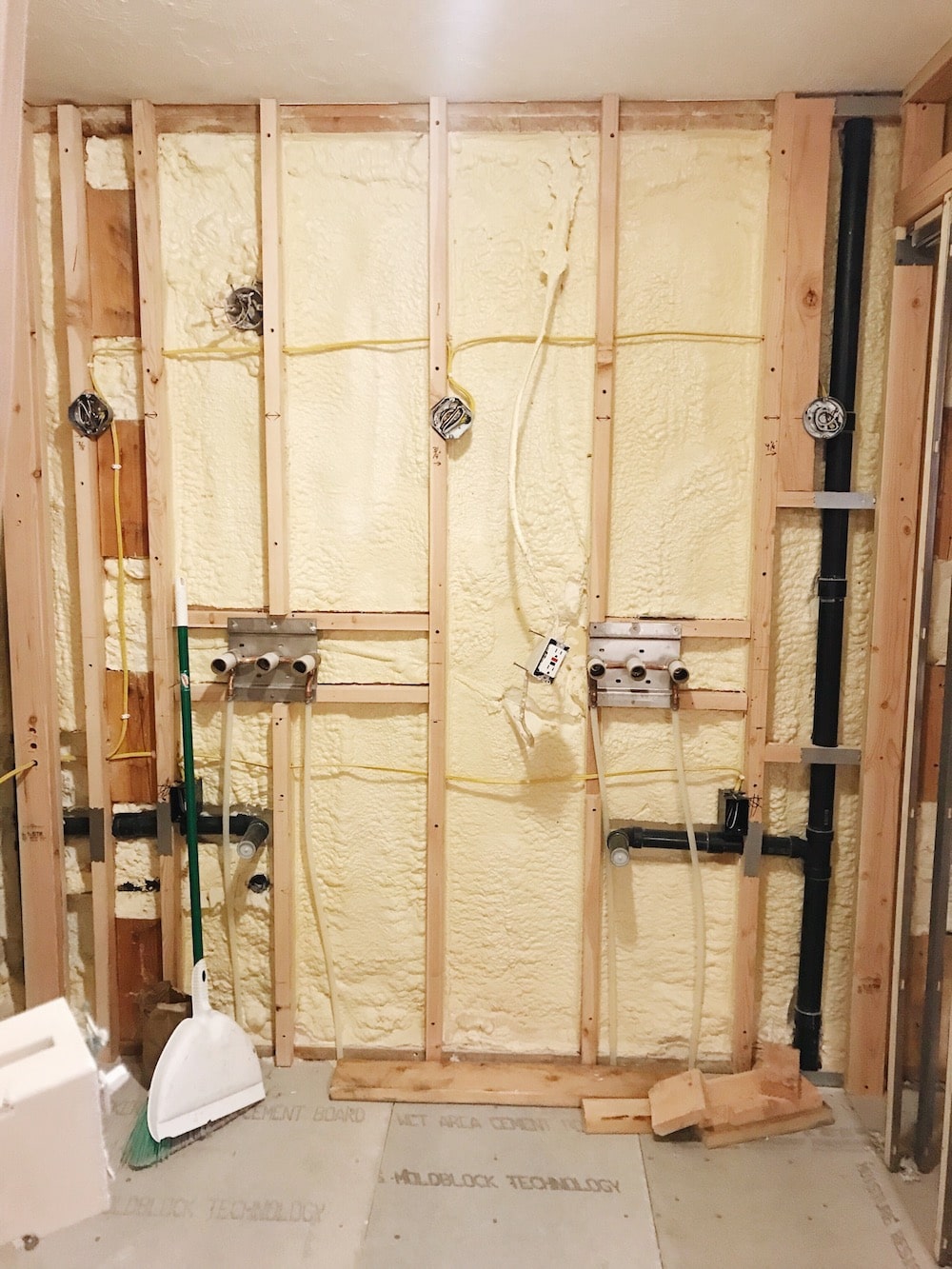
Valve & fixture locations
So you managed to get them all in your house, but now to choose where to put everything? How high up we want the shower handles; how far apart they should be from each other; how high to put the shower heads; how high above the sinks we want the faucets. For some decisions, we rested on the norms from the professionals, or at least wanted to know the norms. Our contractor said he usually puts the control valve up 44in from the floor, so we put the bottom valve at 40in and the top at 48in.
We also decided to put all 6 valves on the same wall, which will be right inside the door. This way you can just reach in and turn whichever shower head on. It's also a bit easier than trying to stuff plumbing into a wall with a pocket door.
Our sink valves are 6" above our countertop.

Water waste
Water waste has been a bit of a concern for Jules and myself. We don't live in a particularly dry climate, but nobody likes to just run water for long amounts of time. The problem with our bathroom is it's across the house from our utility room, and I swear the water lines wrap themselves around the house 5 times before making their way to our bathroom, because it can sometimes take a couple minutes after turning on the shower before it heats up.
For this reason, we decided to spend a little more and have our plumber install a recirculating pump to our bathroom line. What the recirculating pump does is, it cycles hot water back and forth between the water heater and the bathroom fixtures so that, when they're turned on, the water is immediately hot. Combine that with our valve setup outlined above, we have perfect temperature the moment we turn the shower on.
Now, there's a little debate about how much good recirculating pumps actually do. Since you use electricity in the act of saving water, some people think it's a bit of a wash (pun!). But the pump we're having installed is a smart pump (this is the one we're using), which learns our usage behaviors and adjusts accordingly. So it will pick up on the times we're most likely to shower (Jules gets home from the gym every morning around 7:30 and hops in the shower), or do the dishes (morning and evening), or do laundry, and it will turn itself on and off to accommodate. It uses as much energy as a 25 watt bulb and saves over 16,000 gallons of water per year per household--worth the expense.
Shower Drain
This one was a little tricky. You'll remember last week we left off with a picture of a pipe sticking through the ceiling in the girls' room. That was not gonna fly, so we spent the next morning searching for a solution.

To back track, the problem was the amount of water drainage from our shower and our plumber wanting a 3in drain as opposed to a 2in (standard in most showers). The reason for that is the potential water flow through our three shower heads. They ran a new water line directly from our water heater to our bathroom to provide ample water pressure if we decided to have all 3 shower heads blasting at once. Most often there will be one shower head running, and at a moderate flow, and a 2in drain would be just fine. But to cover their bases, they all felt better about a 3in drain in the shower.
The other option was to have two, 2in drains in the shower, but when it comes time to pour the shower pan you have to deal with weird angles and the tile we're using wouldn't sit right. So we looked into linear drains, and actually found a company called Quality Bath (meh on the name, super jazzed about their customer service) that makes a linear drain that is customizable for different installations. Meaning, you can add an extra drain and the drain holes can be moved to wherever you need them!

We ordered the drain and paid for expedited shipping to get it here ASAP. We decided to put the drain just inside the shower threshold so it's mostly out of site, and that will allow the shower pan to be straight from wall to wall, angling slightly downward toward the drain. We're so happy with this solution and can't wait to see how it looks.
This week was heavy in decisions, but so much progress. The electrical gets finished tomorrow, the shower pan will be poured in the next couple days, and we've heard rumors of sheetrock by end of week. Most of the surprises are out of the way (knock on wood) and we're just so excited to watch everything come back together over the next few weeks.
Check out Week 1 progress here.
And the Bathroom Mood Board here!
SaveSave
Leave a Reply
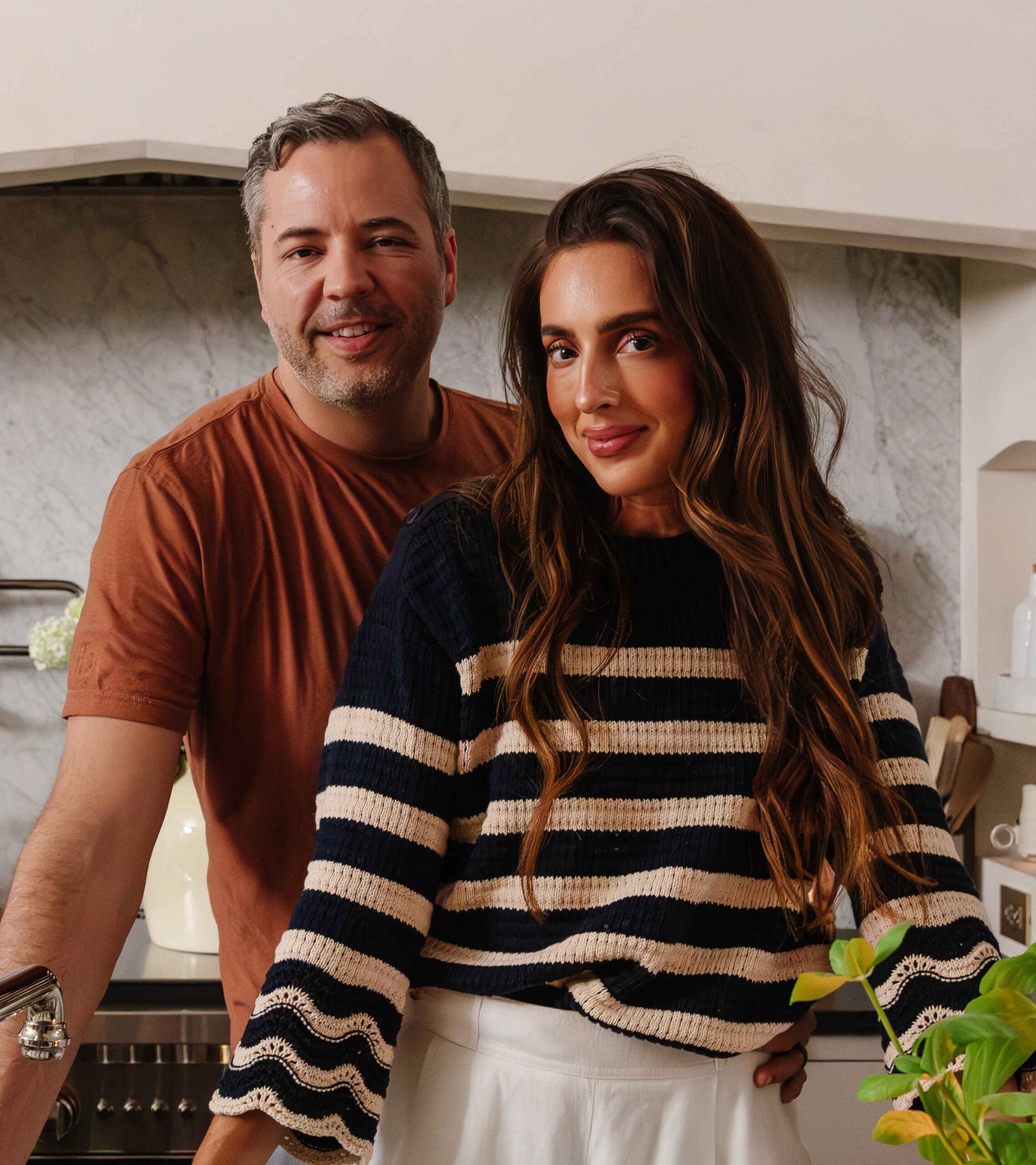
WE'RE CHRIS + JULIA
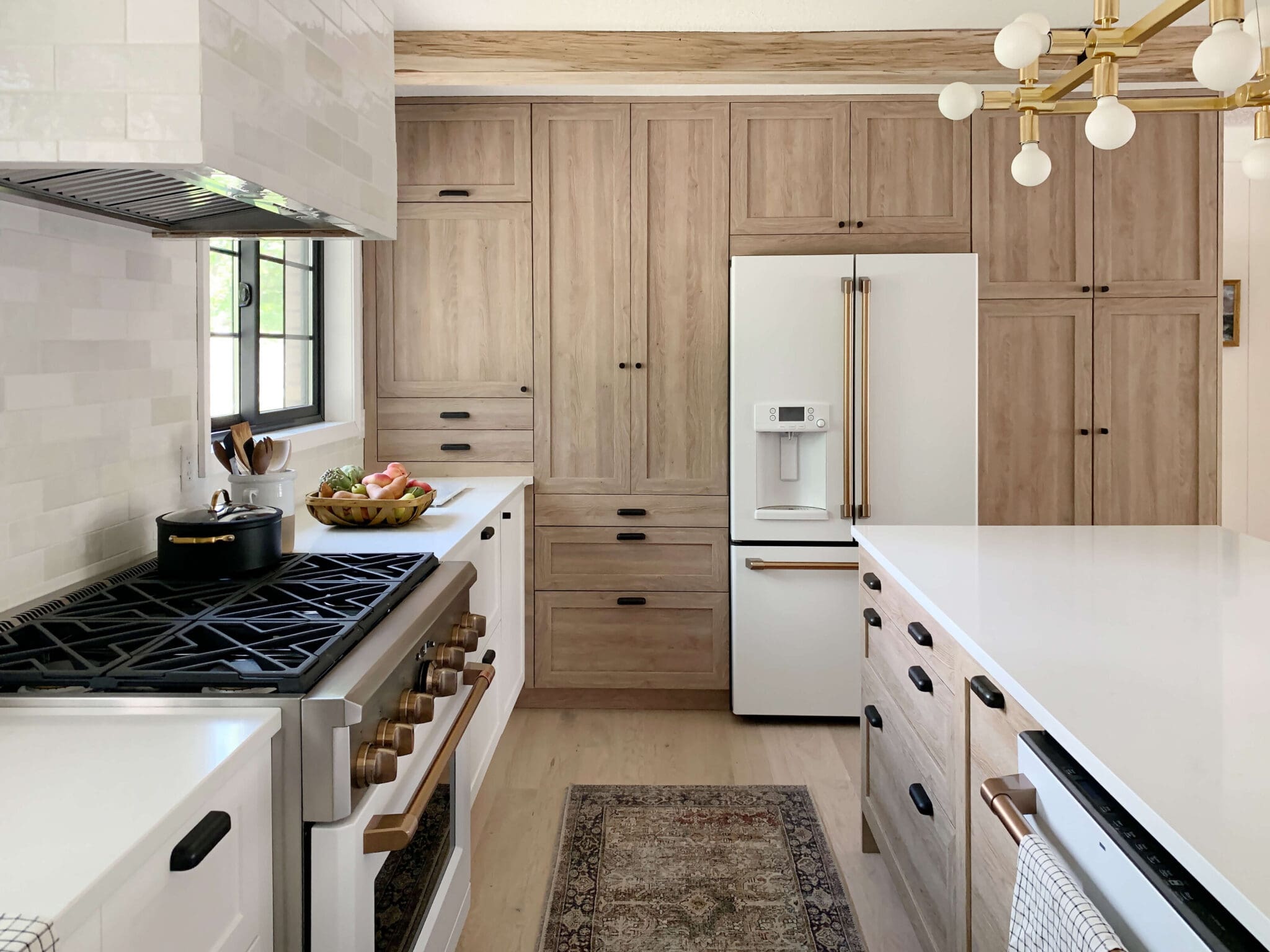
Portfolio
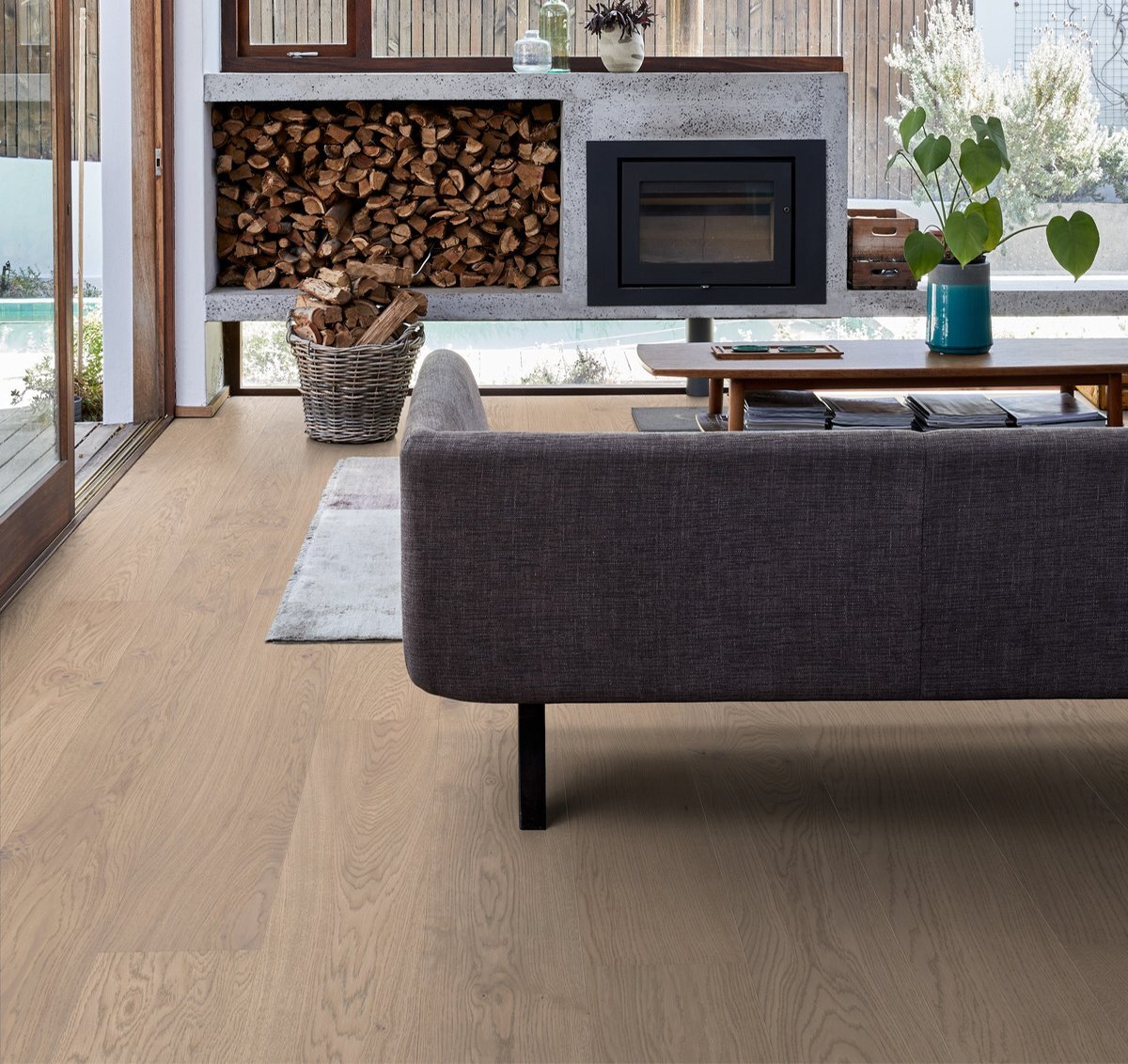
Projects
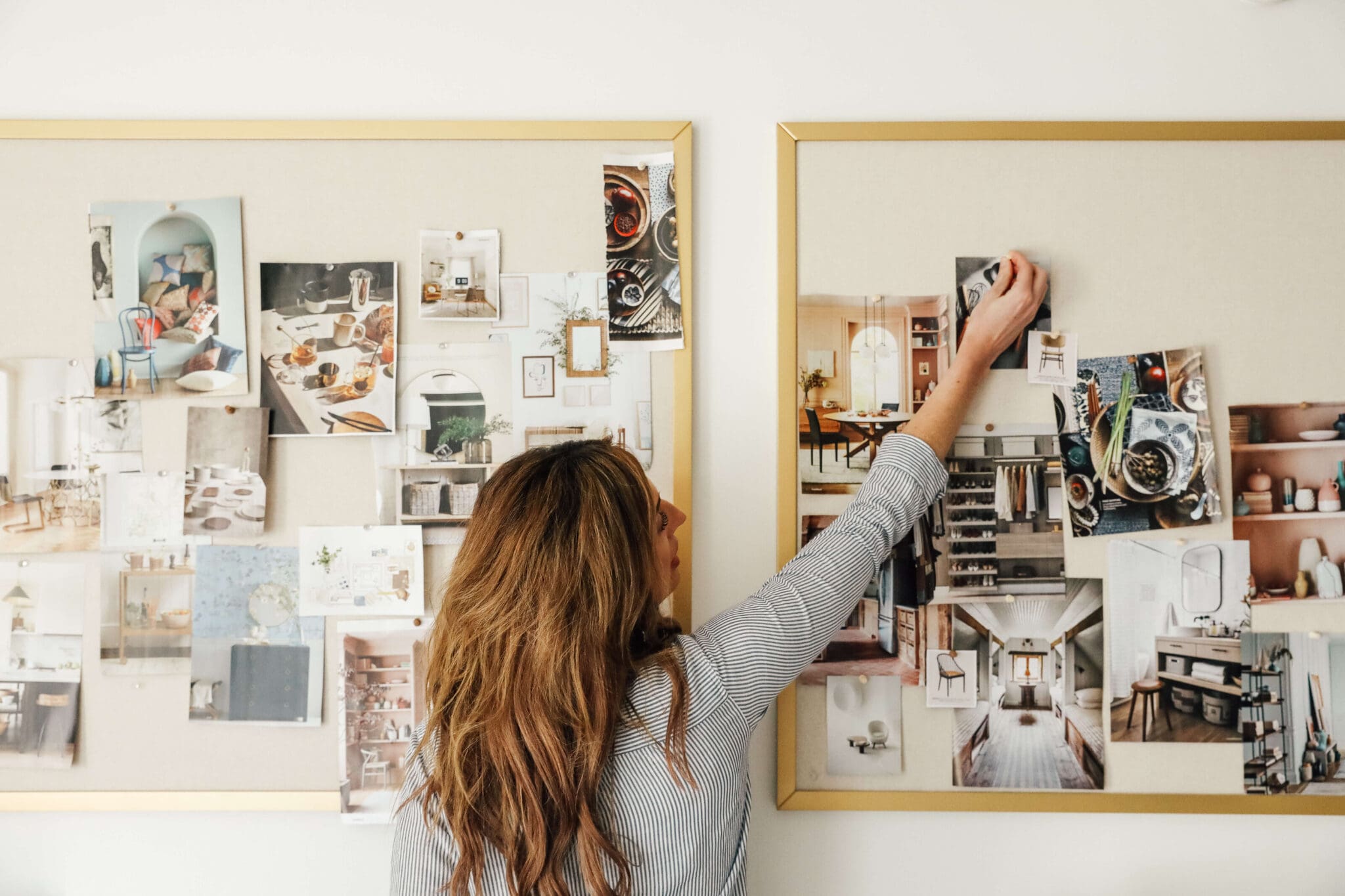

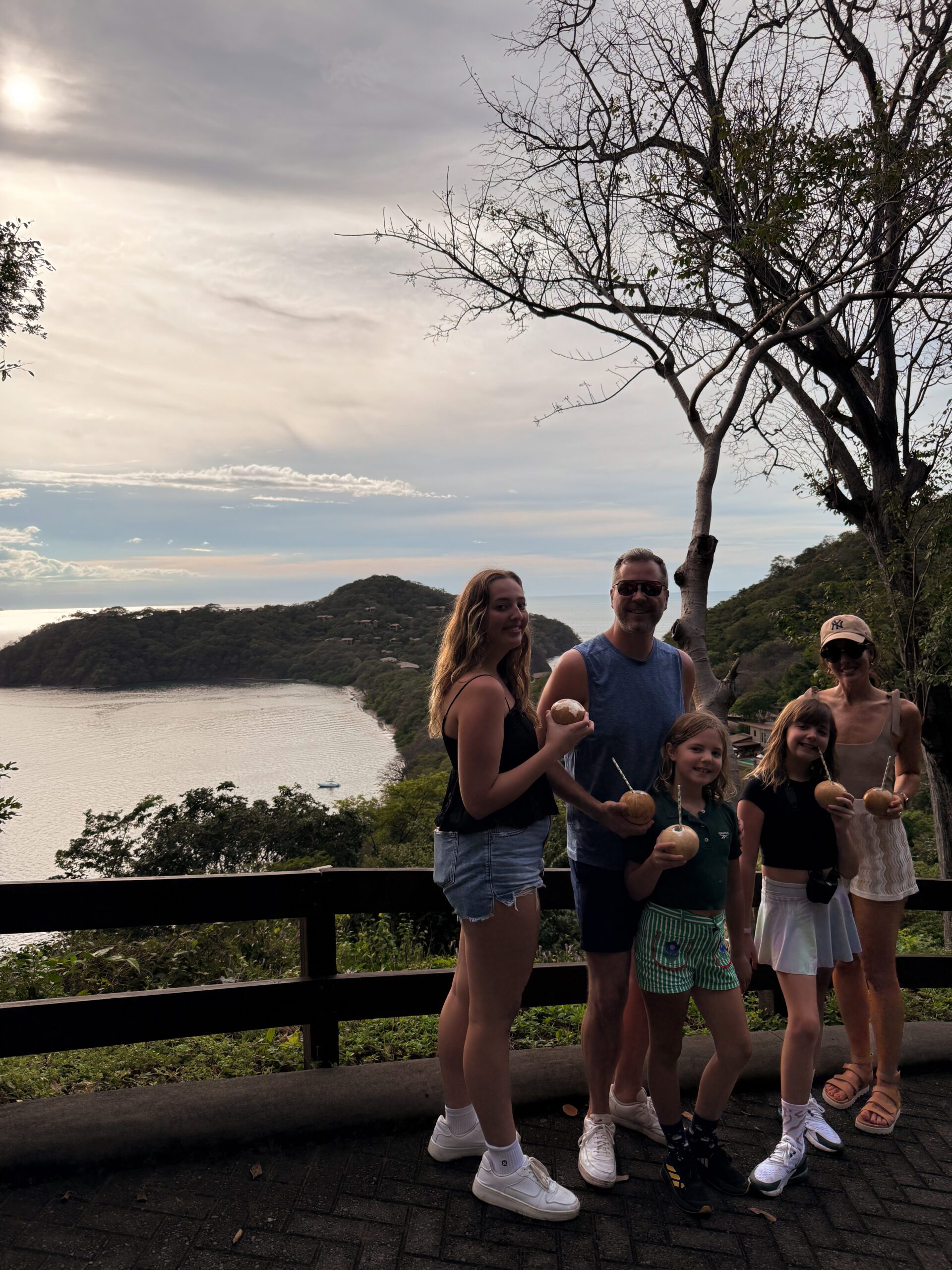

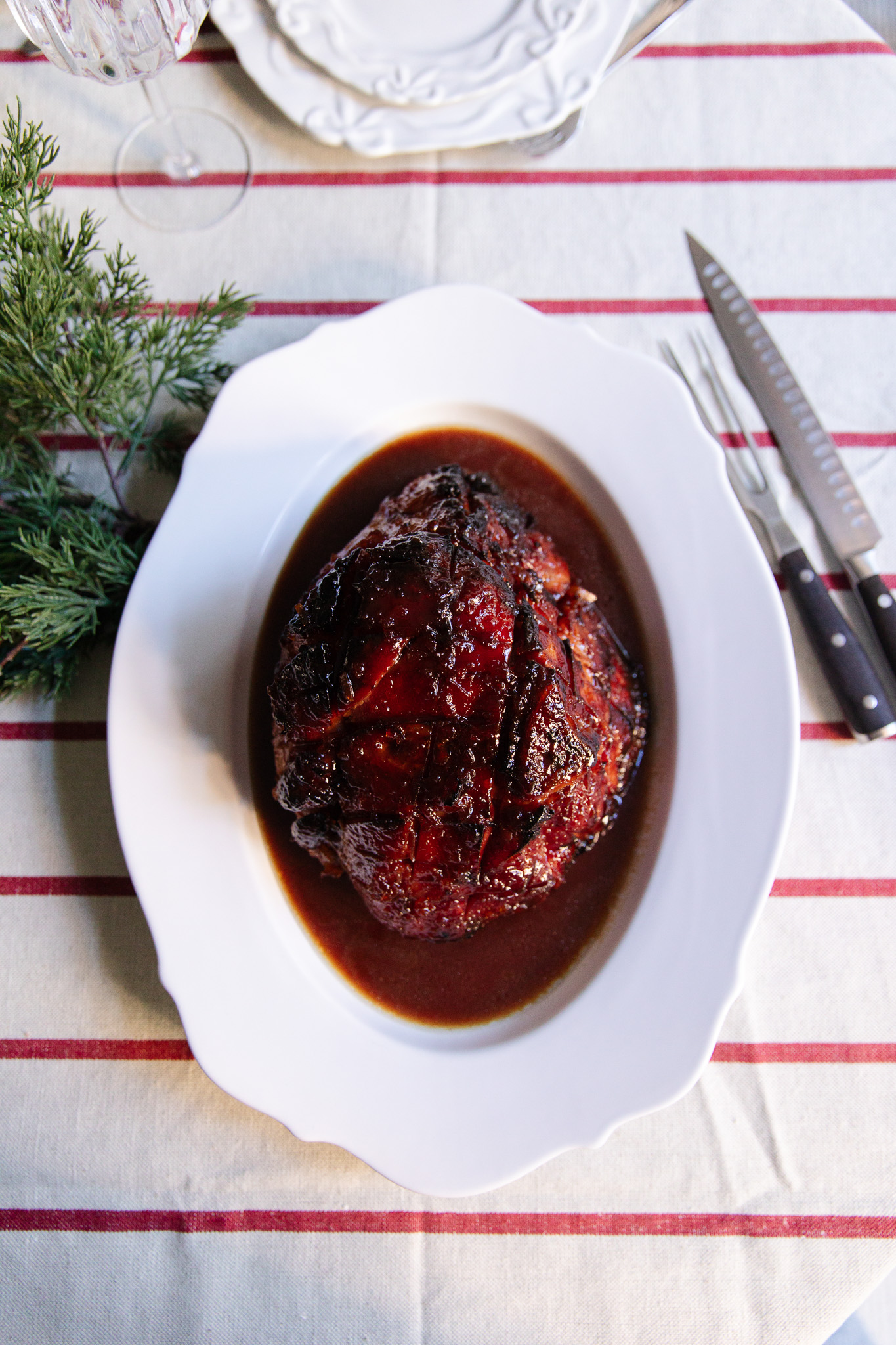
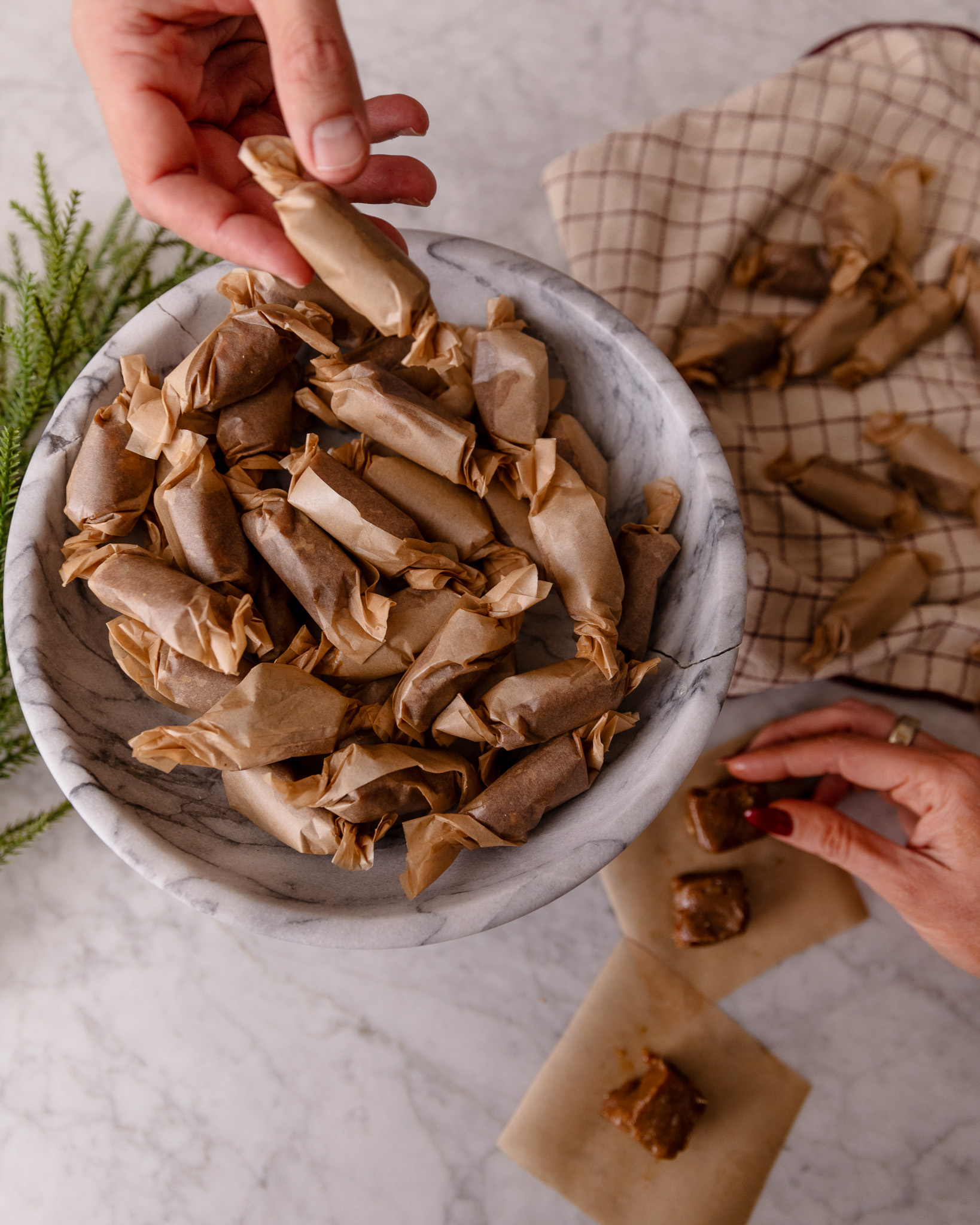

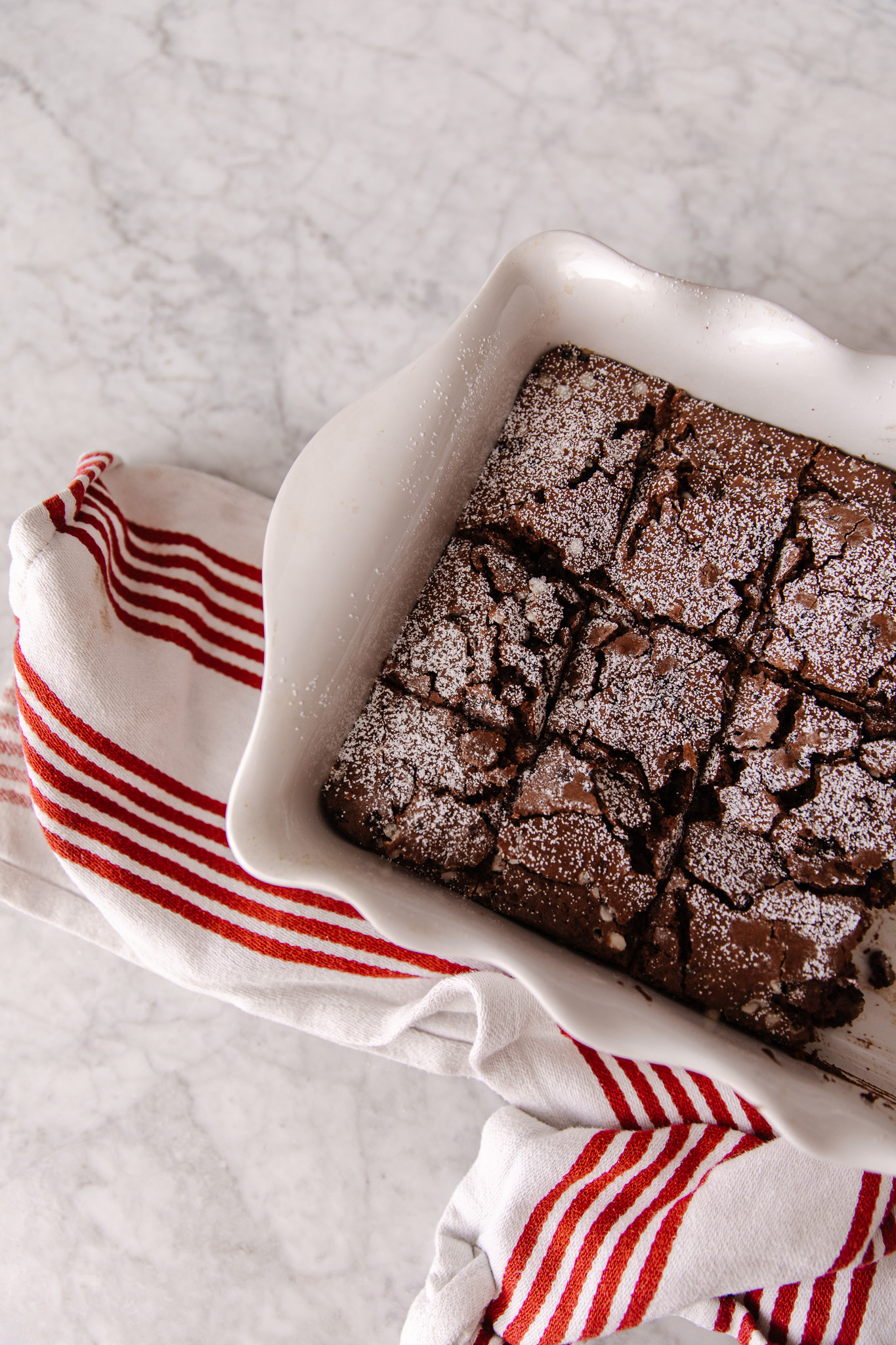


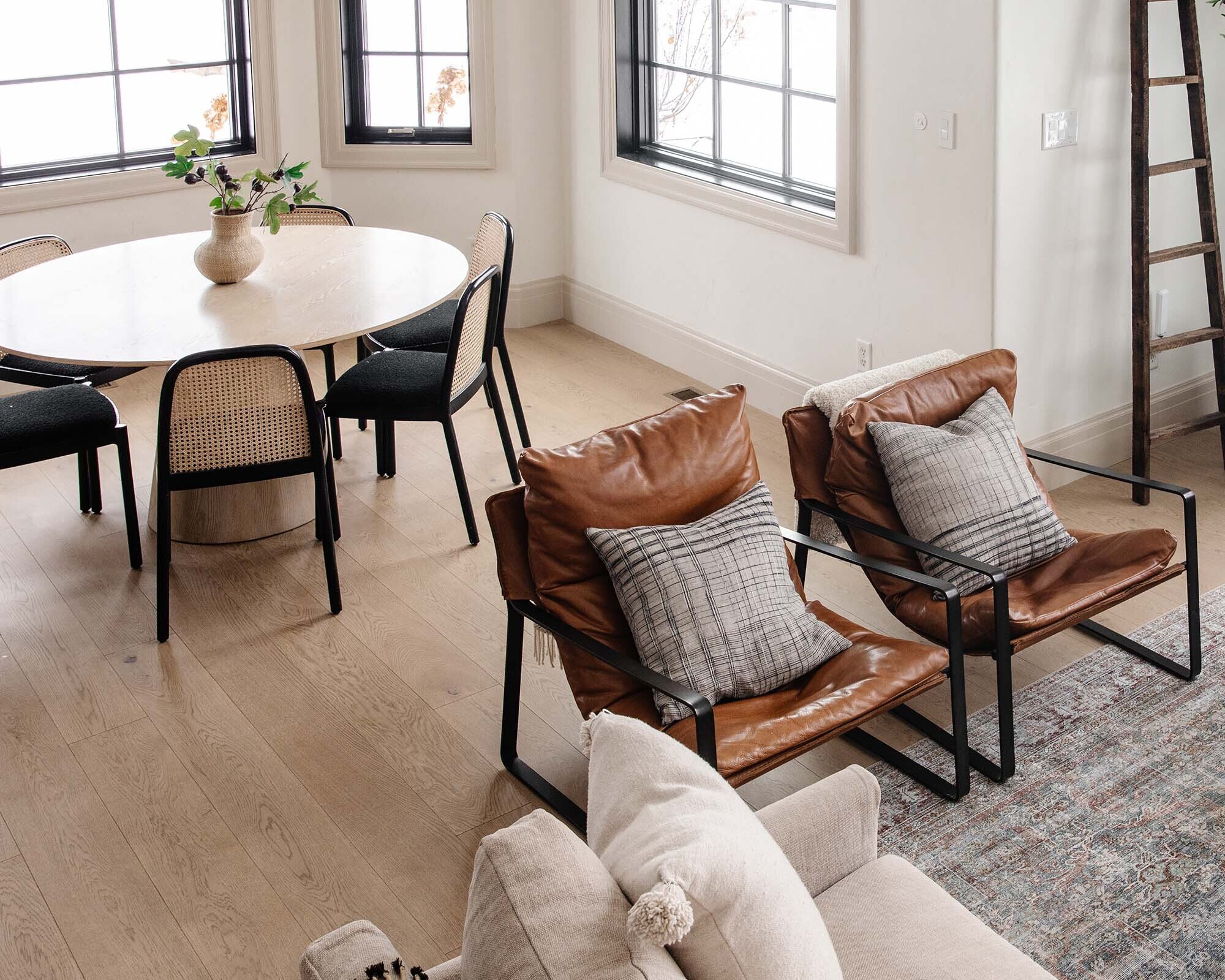


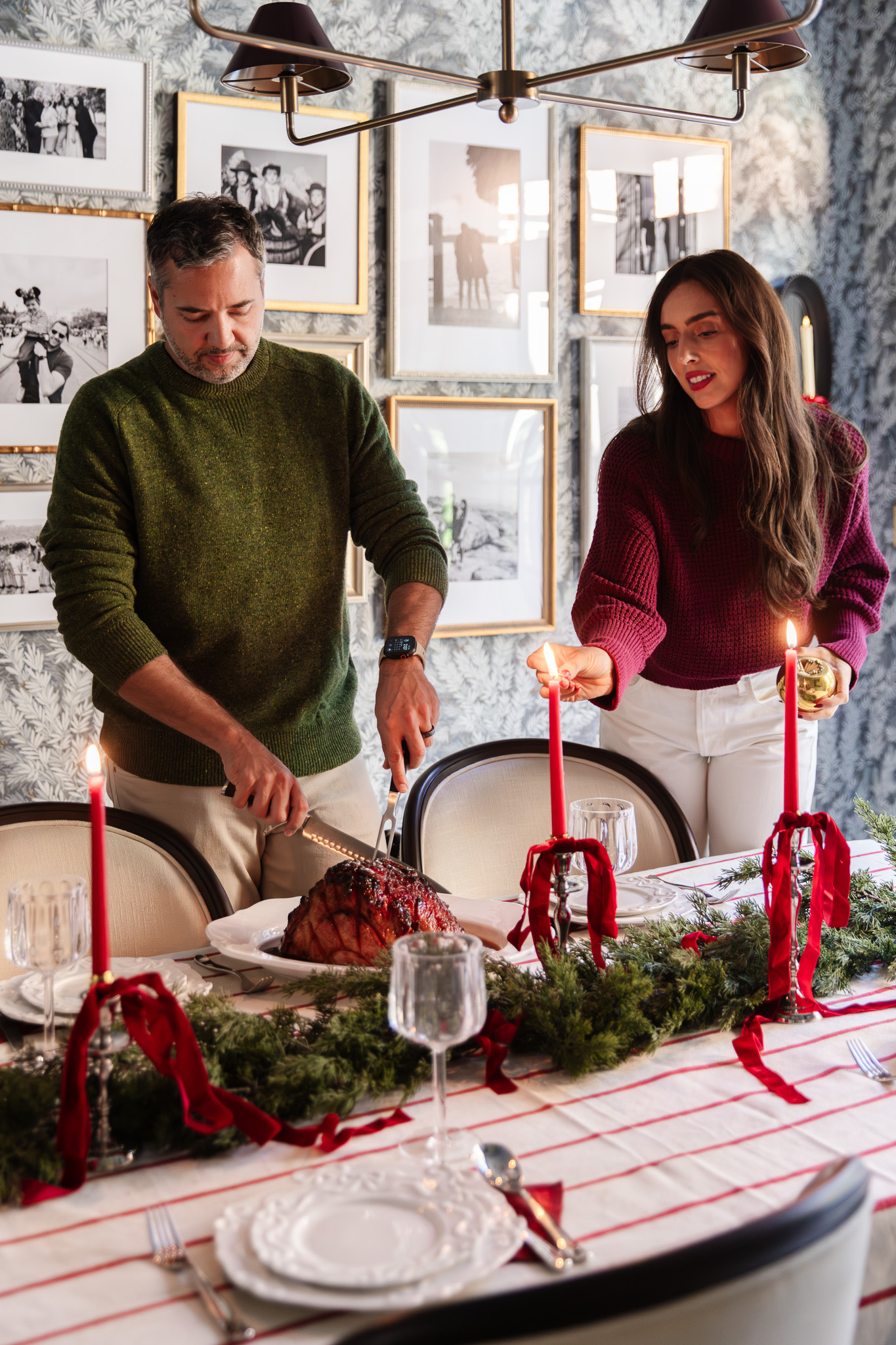
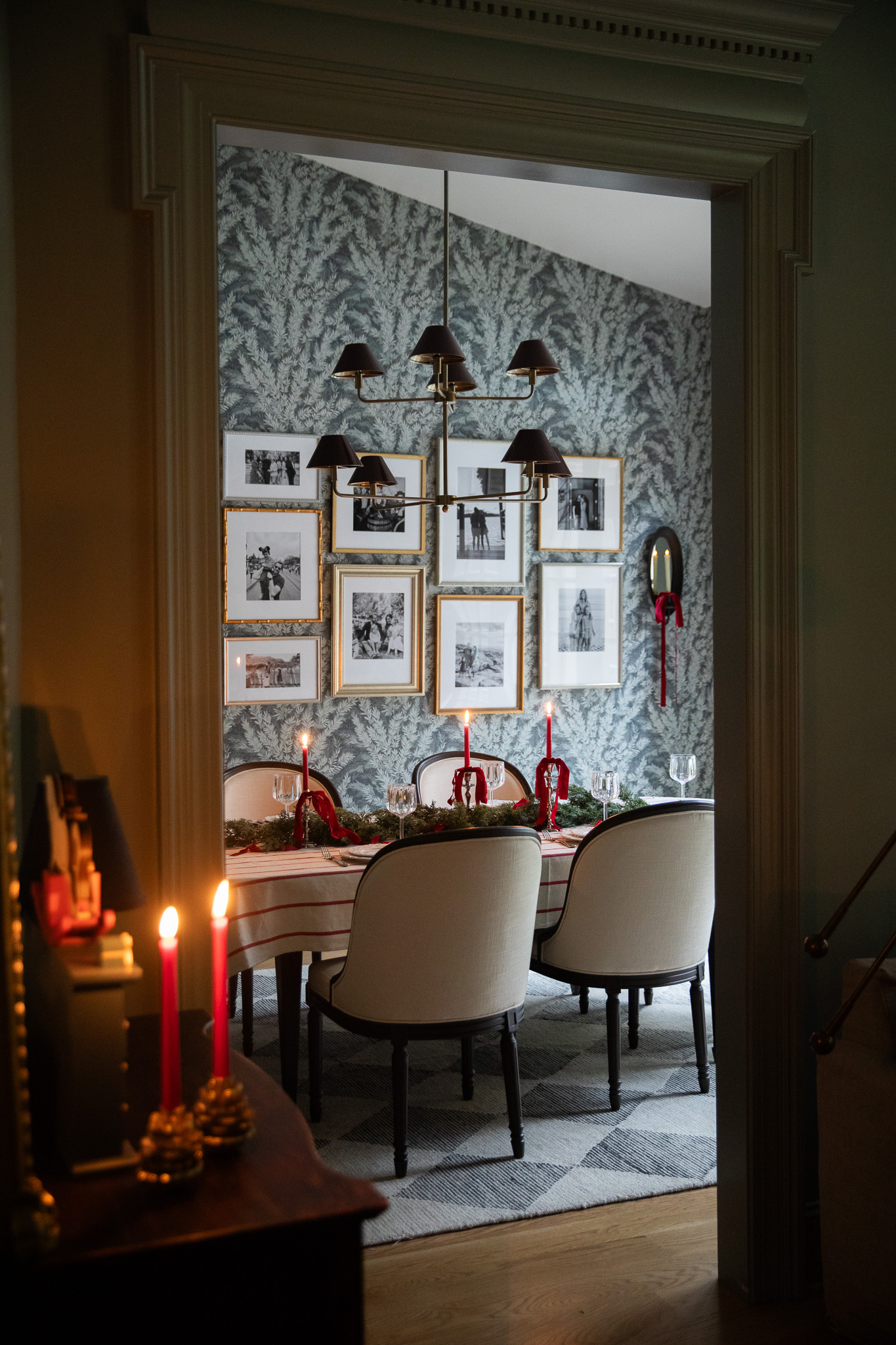


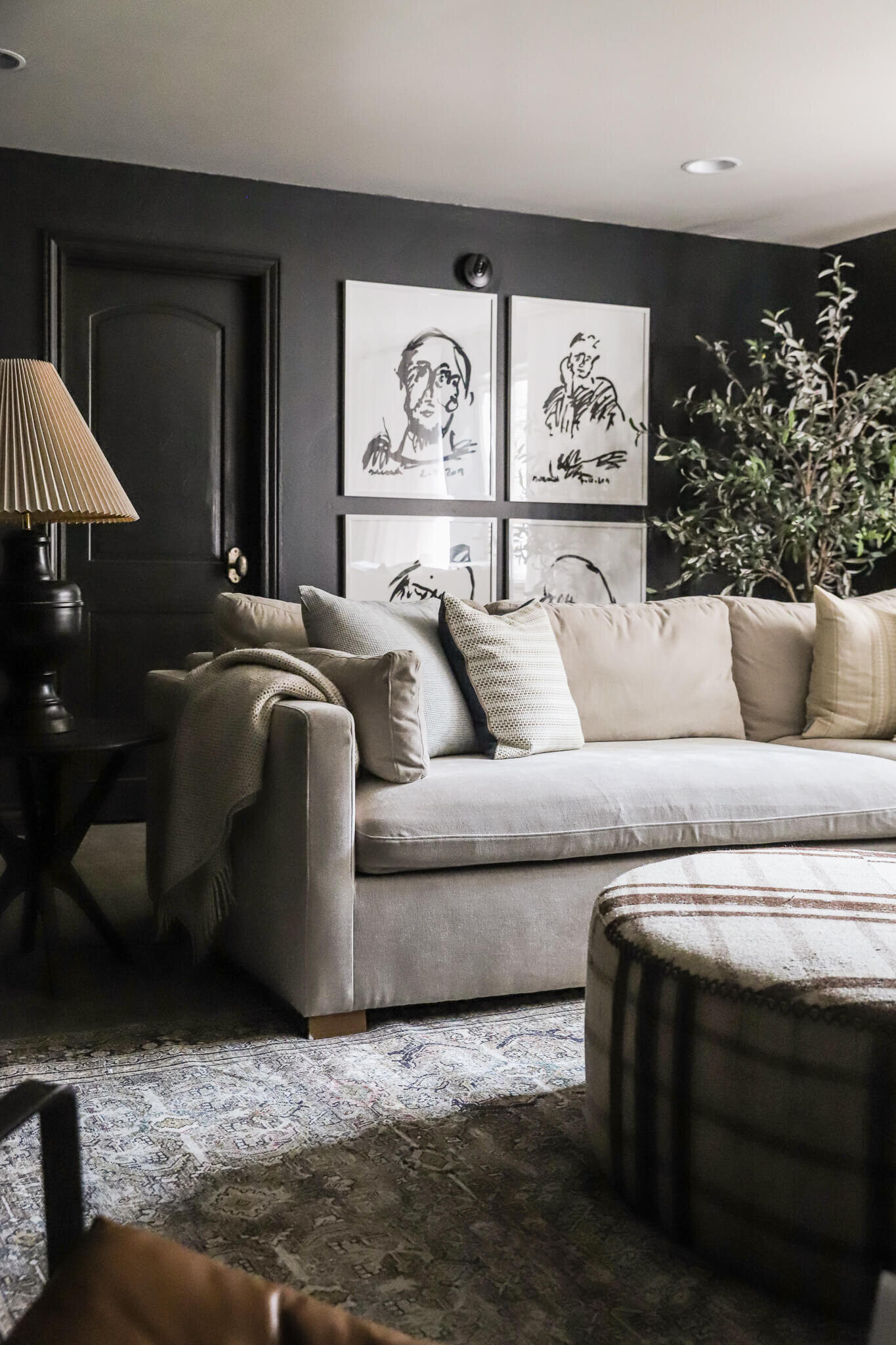


shower valve located adjoin to drain. because of water waste and and keep the bathroom dry. I question is commode and shower valve and bathtub how much distance?
shower valve located adjoin to drain. because of water waste and and keep the bathroom dry. I question is commode and shower valve and bathtub how much distance?
shower valve located adjoin to drain. because of water waste and and keep the bathroom dry.
I just want to thank you for how detailed you are in this post! I am currently in the end stages of a bathroom renovation (not nearly as complicated as yours) and these measurements have GREATLY helped me. Spacing everything has been so stressful and being able to reference where you located valves has been a huge help!
What height is your electrical rough-in for the sconces?
I had never heard of the recirculating water thing until our friends moved here last year and bought a newish house (their neighborhood still has empty lots being filled). They have had all sorts of problems with their pipes because they have corroded with all that water running through them all the time. They have had to rip up flooring, ceilings and walls to fix it. It sounded like a great feature when they bought their house, but now they wish they could rip it all out (it runs through their whole house).
My favorite part of this post is all the men commenting! Now I know men like DIY/design blogs too. ;)
Out of the woodwork! Haha
Looks to me like diverter valves not volume control valves
You're right, Ron! We're getting them swapped out.
It's going to be difficult to waterproof around those drains with them so close the that curb. I think a linear drain would have been more appropriate. That's going to give you issues later.
We are actually doing a linear drain. This is just the under part of it. Our contractor has it on lock, thanks for your concern, though!
Piping arrangement looks nice, but I think the transfer valve (smaller valve on top) is the wrong valve. To control volume you need a Volume Control Valve, not a Transfer Valve, which is what is installed. That transfer valve will turn on the water but it will not control volume. I am plumber and I’m familiar with those valves, they are Kohler. Have your plumber test it before it gets sheetrocked and tiled.
Thanks Andrew! We're so grateful our readers respectfully pointed this out to us before it was too late. We have the correct valves now and are swapping them out.
Should have put volume control valves in for your shower heads. Thermostatic valve does only control temp. But those Kohler diverter valves do not function as an on/off valve.
Oh my gosh, you're so right!! I'm glad you caught this.
Those are volume controls above the thermostatic valves. I just installed those valves in two different houses.
Even if they are diverter they will shut it off and on..
Julia have you finished the shower yet? You might want to take a look into the schluter system.
Not yet! Thanks for the rec!
No problem! They have how to videos on youtube for basically every application. Even if you already put in durock or something similar like cement board I would still recommend schluter on top, it's a very good water/ vapor barrior.
Thanks! I know our contractors are doing a multi-layer system with a vapor barrier and duroc and something else. I'll have to ask if it's the same!
Oh, thanks for detailing this out. I’m particularly interested in the recirculating pump. It takes maybe 5 minutes for warm water to get to our bathroom. It’s wasteful to let all that water run and kind of annoying waiting.
Can’t wait to see the final post. I hope you will let us know what you think of the recirculating pump after a few weeks.
P.S. Is the linked one a smart one or on a timer?
Just updated the link! We got the smart one (and I accidentally linked the timer). Will for sure update you on how things go once we're settled in. :)
I've never heard of this before! Can you hear the water flow in the pipes?
It's tricky ordering a complete shower system like the one you installed but they are so cool once they are finally installed! I can't wait to see the progress in your master bath as you get further along. For other people researching this kind of system there's a super detailed article here: https://faucetlist.com/blogs/buying-guides/shower-systems It's only about Delta shower systems but it was really helpful in understanding what fixtures you need. The article makes it seem like Delta works a bit different from Kohler but from what you describe it sounds like yours is gonna be super cool once it's finished. There are so many options that it helps to know about them all in advance so you can really get exactly what you want. PS, nice shoes!
When we built our house 10 years ago it didn't even occur to me to think about the placement of the shower valve. So, of course it was installed on the back wall of the shower. I curse every morning when I literally have to step into the shower to turn it on and get blasted by cold water (no thermostat valve). It's possibly the thing I am most looking forward to fixing when we eventually remodel the master bathroom.
Julia - shoes in the last pic? a source if you can? i can tell they're adidas, but that's about it. i need a new pair athletic-type shoes so bad and i'm starting to get overwhelmed with choices. i'm 6' tall like you, and i've even dipped all my toes into mens' shoes trying to find a pair!
They're from right here!
Did you guys consider tankless water heaters? I don't know much (or anything at all) about water heaters/systems. We keep saying we'll eventually get tankless for our home, but now a recirculating pump seems like a better idea.
We actually had to replace our water heater a couple years ago and decided to go with standard ones. The addition of the pump seems like the best of both worlds.
We have a tankless hot water heater, and I hate it. It a) is SO noisy when it’s in use (even from our garage), b) heats so inconsistently (the shower will go from blazing hot to lukewarm without adjusting a thing!), and c) takes forever to heat up at our most used faucets. It’s a gas one, I’ve heard Electric is even worse. Anyway, we would not recommend after our experience with ours.
Ali obviously has a subpar tankless. The Navien tankless come with a pump already in it, the heater also offers intelligent preheating to learn your patterns. Will give you a steady flow of hot water within 1 degree of set point temperature. Saves close to $100 a yr in gas vs tank, more like $150-200 in this situation. Longest warranty of any water heater, and will never run out of hot water ever...... With the flow rate out of 3 shower heads and body sprays, you will drain down a 50 gallon tank in about 10 minutes... It's a no brainier buy a good brand and pay a licensed trained plumber to install it.
We bought our house with it already installed, so I’m not sure any of the details of installation. It’s not a cheap brand. But several professionals we’ve had come to our home (plumber, electrician, and natural gas tech) all said that’s typical with a tankless heater; those things I described, so I don’t believe our experience to be uncommon. But again, that’s just our experience.
In regards to location of the toilet, a floor joist is no issue. Cut the offending section out and header off the joist to to the outer two joists. It's done frequently in construction of custom homes.
It sounds like you did an awesome job navigating the obstacles that came up! I'm excited to see the end result. Thanks for sharing the minutiae -- I know I'll be consulting this post if I ever take on a project like this.
By the way, have you thought about putting together a directory page that lays out each room in your house and links the reno posts? Maybe there are too many posts for that to be practical, but I would find it useful!
That would be a great idea! I'll work on it. :)
Whew! SO many decisions that you would never ever think about until you're in the thick of them! I'm curious if your plumber/contractor gave you any push back about your wall mounted faucets? When we renovated our master bathroom in our current house I had planned on wall mounted faucets for the sinks and the plumber was SUPER against it and talked me out of it (saying if it leaked it'd be in the wall and you wouldn't know etc.) Just wondering if anything similar was mentioned to you!
They didn't say anything to us about it. I guess I can see that argument, but I also might be a little worried about a plumber already talking about his work leaking before he's even done it. haha
I'm curious about the cost and installation of the recirculating pump. That's a lot of water to save, but how long will it take to pay for itself? And is it installed near your water heater or was there additional demo involved to put it in?
The pump is installed in our utility room. They said adding the pump will be an additional $500, but that included the $250 pump.
There are more energy efficient pumps available that offer a quicker ROI.